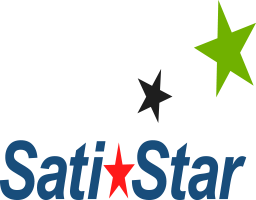Lean Manufacturing – Executive Overview
Overview
Lean Manufacturing was pioneered by Toyota, and is an all-encompassing approach to maximizing overall organizational efficiency. Equally applicable to manufacturing and service businesses, Lean has been successfully implemented in thousands of leading companies worldwide.
Lean thinking is a process, not simply a collection of improvement tools, that you use to look at your business (manufacturing, service or any other activity where you have suppliers and customers).
Lean enables you to assess your organization from the customer’s perspective and determine how to eliminate the waste properly – knowing when and how to apply the tools to maximize results. When applied properly, you will reduce your lead time, reduce your costs (bottom line), reduce defects and increase responsiveness to emerging customer demands. Your company becomes world-class!
In many cases, efforts to implement Lean have stalled because the organization involved used various Lean techniques without sufficient thought about creating a culture that would enable success.
This workshop is designed to provide executive level participants with an overview of the concepts of Lean Manufacturing. It is for those individuals whose task is to create an environment that fosters and sustains Lean changes in their organization, including:
- Business Owners
- Operational Leaders
- Value Stream Managers
- Human Resource Managers
- Financial Managers
Approach
This 1/2 day highly interactive course is targeted at the leadership team of an organization that is considering implementing Lean Manufacturing. This workshop covers core concepts of Lean, and then culminates a group discussion of the specific issues and approach that would be most appropriate for your organization.
What You Will Learn
Participants will learn:
- Definition of Lean
- Background and history of Lean
- Basic principles of Lean
- House of Lean
- Description of Lean tools
- Technical and social aspects of Lean
- Why should companies implement Lean
- Typical costs and benefits
- The phased approach to Lean
- Assessment & Planning
- Transformation
- Sustainability
- Best practices benchmarking
- Project management
- Change management
- Timelines
- Real world applications, case studies, examples
- Leadership roles and responsibilities
- Common pitfalls / obstacles and countermeasures
Training Outcomes
Participants will have a basic understanding of the concepts of Lean Thinking, and be able to provide the appropriate leadership to ensure the success of their Lean transformation effort.
WHAT PEOPLE ARE SAYING
SatiStar's Experience Makes The Difference!
